Toyota Yaris vs VW Golf - Differences and prices compared
Compare performance (280 HP vs 333 HP), boot space and price (21900 £ vs 25200 £ ) at a glance. Find out which car is the better choice for you – Toyota Yaris or VW Golf?
Costs and Efficiency:
Price and efficiency are often the first things buyers look at. Here it becomes clear which model has the long-term edge – whether at the pump, the plug, or in purchase price.
Toyota Yaris has a slightly advantage in terms of price – it starts at 21900 £ , while the VW Golf costs 25200 £ . That’s a price difference of around 3338 £.
Fuel consumption also shows a difference: VW Golf manages with 1.10 L and is therefore decisively more efficient than the Toyota Yaris with 3.80 L. The difference is about 2.70 L per 100 km.
Engine and Performance:
Power, torque and acceleration say a lot about how a car feels on the road. This is where you see which model delivers more driving dynamics.
When it comes to engine power, the VW Golf has a a bit edge – offering 333 HP compared to 280 HP. That’s roughly 53 HP more horsepower.
In acceleration from 0 to 100 km/h, the VW Golf is a bit quicker – completing the sprint in 4.60 s, while the Toyota Yaris takes 5.50 s. That’s about 0.90 s faster.
In terms of top speed, the VW Golf performs somewhat better – reaching 270 km/h, while the Toyota Yaris tops out at 230 km/h. The difference is around 40 km/h.
There’s also a difference in torque: VW Golf pulls hardly perceptible stronger with 420 Nm compared to 390 Nm. That’s about 30 Nm difference.
Space and Everyday Use:
Beyond pure performance, interior space and usability matter most in daily life. This is where you see which car is more practical and versatile.
Both vehicles offer seating for 5 people.
In curb weight, Toyota Yaris is to a small extent lighter – 1090 kg compared to 1307 kg. The difference is around 217 kg.
In terms of boot space, the VW Golf offers evident more room – 381 L compared to 286 L. That’s a difference of about 95 L.
In maximum load capacity, the VW Golf performs evident better – up to 1237 L, which is about 302 L more than the Toyota Yaris.
When it comes to payload, Toyota Yaris barely noticeable takes the win – 525 kg compared to 508 kg. That’s a difference of about 17 kg.
Who wins the race in the data check?
The VW Golf is far ahead overall in the objective data comparison.
This result only shows which model scores more points on paper – not which of the two cars feels right for you.
Costs and Consumption
View detailed analysis
Engine and Performance
View detailed analysis
Dimensions and Body
View detailed analysis
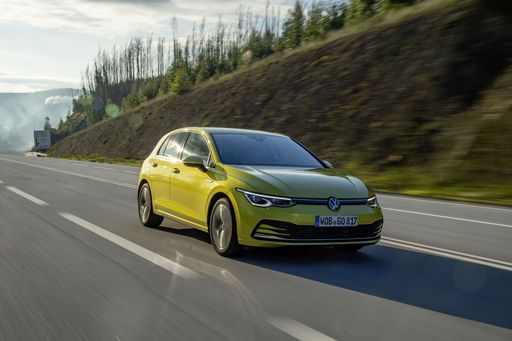
VW Golf
Toyota Yaris
The Toyota Yaris is a sprightly city hatch that packs clever packaging, surprising comfort and fuel-sipping manners into a neat, easy-to-park package. It rewards sensible buyers with low running costs, friendly ergonomics and a forgiving drive, delivered with Japanese reliability and just enough personality to make errands feel a little less ordinary.
details

VW Golf
The VW Golf remains the everyman’s favourite — cleverly balanced, composed and just posh enough to feel grown-up without pretending to be something it’s not. It slips through town and eats up longer trips with a refined cabin, practical layout and a kindly, capable character that turns everyday driving into something a little bit special.
details
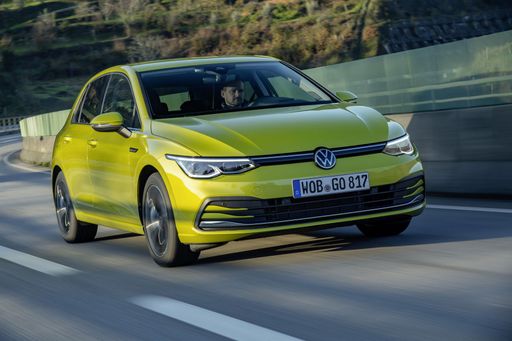
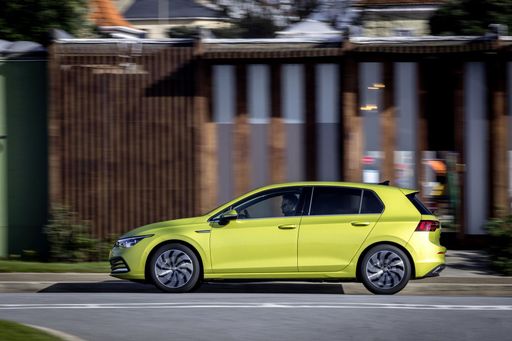
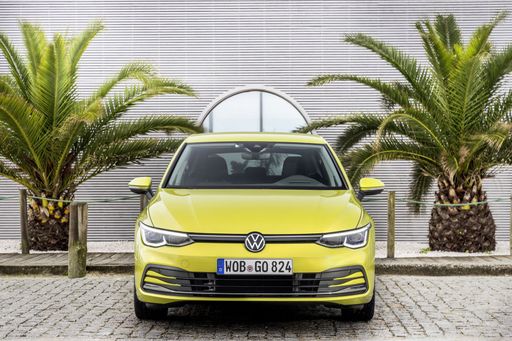
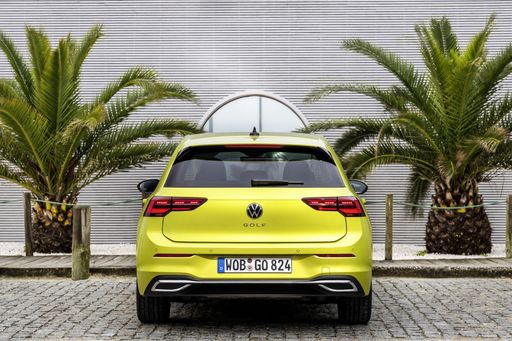
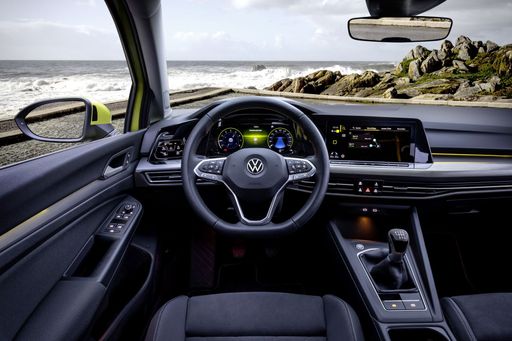
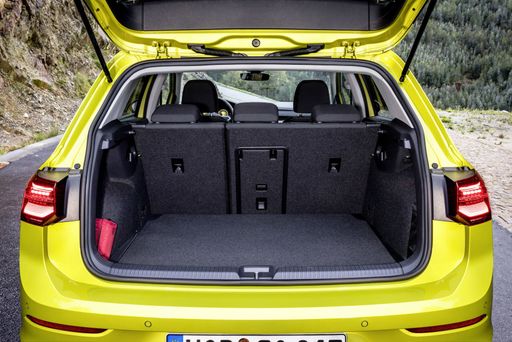
Costs and Consumption |
|
|---|---|
|
Price
21900 - 46700 £
|
Price
25200 - 47600 £
|
|
Consumption L/100km
3.8 - 9.5 L
|
Consumption L/100km
1.1 - 8.1 L
|
|
Consumption kWh/100km
-
|
Consumption kWh/100km
-
|
|
Electric Range
-
|
Electric Range
131 - 143 km
|
|
Battery Capacity
-
|
Battery Capacity
19.70 kWh
|
|
co2
87 - 215 g/km
|
co2
25 - 184 g/km
|
|
Fuel tank capacity
36 - 50 L
|
Fuel tank capacity
40 - 55 L
|
Dimensions and Body |
|
|---|---|
|
Body Type
Hatchback
|
Body Type
Hatchback
|
|
Seats
4 - 5
|
Seats
5
|
|
Doors
3 - 5
|
Doors
5
|
|
Curb weight
1090 - 1356 kg
|
Curb weight
1307 - 1662 kg
|
|
Trunk capacity
141 - 286 L
|
Trunk capacity
273 - 381 L
|
|
Length
3940 - 3995 mm
|
Length
4282 - 4296 mm
|
|
Width
1745 - 1805 mm
|
Width
1789 mm
|
|
Height
1455 - 1500 mm
|
Height
1454 - 1483 mm
|
|
Max trunk capacity
935 L
|
Max trunk capacity
1129 - 1237 L
|
|
Payload
289 - 525 kg
|
Payload
438 - 508 kg
|
Engine and Performance |
|
|---|---|
|
Engine Type
Full Hybrid, Petrol
|
Engine Type
Petrol MHEV, Petrol, Diesel, Plugin Hybrid
|
|
Transmission
Automatic, Manuel
|
Transmission
Automatic, Manuel
|
|
Transmission Detail
CVT, Manual Gearbox, Automatic Gearbox
|
Transmission Detail
Dual-Clutch Automatic, Manual Gearbox
|
|
Drive Type
Front-Wheel Drive, All-Wheel Drive
|
Drive Type
Front-Wheel Drive, All-Wheel Drive
|
|
Power HP
116 - 280 HP
|
Power HP
116 - 333 HP
|
|
Acceleration 0-100km/h
5.5 - 9.7 s
|
Acceleration 0-100km/h
4.6 - 10.2 s
|
|
Max Speed
175 - 230 km/h
|
Max Speed
202 - 270 km/h
|
|
Torque
390 Nm
|
Torque
220 - 420 Nm
|
|
Number of Cylinders
3
|
Number of Cylinders
4
|
|
Power kW
85 - 206 kW
|
Power kW
85 - 245 kW
|
|
Engine capacity
1490 - 1618 cm3
|
Engine capacity
1498 - 1984 cm3
|
General |
|
|---|---|
|
Model Year
2024 - 2025
|
Model Year
2024 - 2025
|
|
CO2 Efficiency Class
B, G
|
CO2 Efficiency Class
D, F, G, C, B
|
|
Brand
Toyota
|
Brand
VW
|
Is the Toyota Yaris offered with different drivetrains?
The Toyota Yaris is offered with Front-Wheel Drive or All-Wheel Drive.




